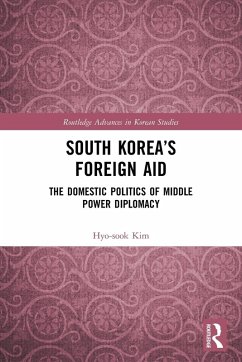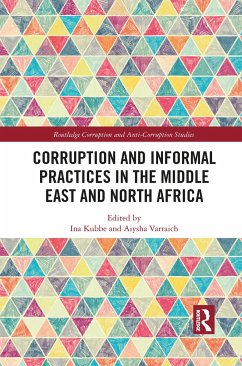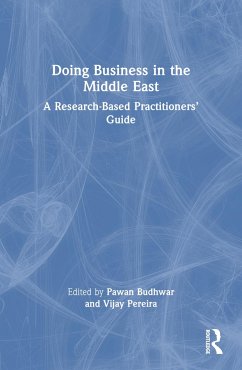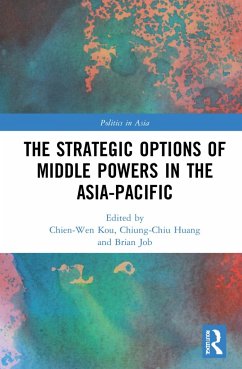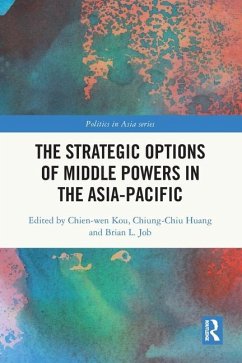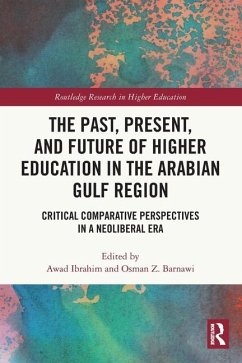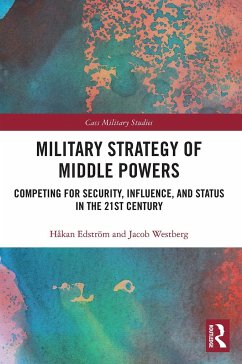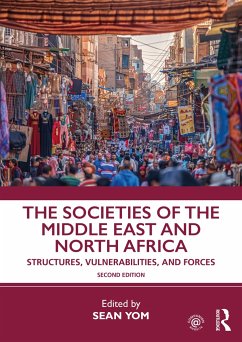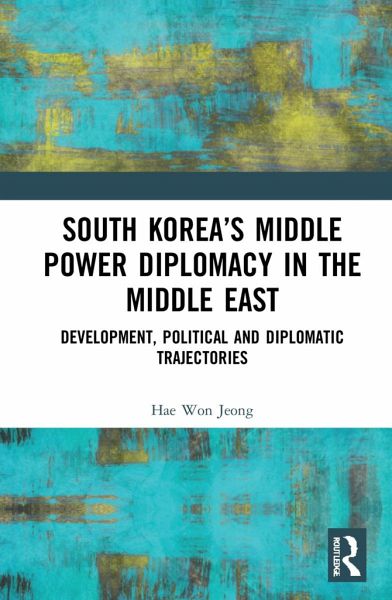
South Korea's Middle Power Diplomacy in the Middle East
Development, Political and Diplomatic Trajectories
Versandkostenfrei!
Versandfertig in 6-10 Tagen
154,99 €
inkl. MwSt.
Weitere Ausgaben:

PAYBACK Punkte
77 °P sammeln!
This book examines theoretical and empirical approaches to the study of middle powers with reference to South Korea's bilateral relations with Iran, Saudi Arabia, United Arab Emirates and Iraq.It maps the development, political and diplomatic trajectories between South Korea and Iran, Saudi Arabia, United Arab Emirates and Iraq against the historical backdrop of ROK-US alliance and the rise of China. Jeong provides a nuanced analysis of the intersectionality of political economy and foreign policy analysis contextualizing state-building processes in ROK and the Middle Eastern countries.This ac...
This book examines theoretical and empirical approaches to the study of middle powers with reference to South Korea's bilateral relations with Iran, Saudi Arabia, United Arab Emirates and Iraq.
It maps the development, political and diplomatic trajectories between South Korea and Iran, Saudi Arabia, United Arab Emirates and Iraq against the historical backdrop of ROK-US alliance and the rise of China. Jeong provides a nuanced analysis of the intersectionality of political economy and foreign policy analysis contextualizing state-building processes in ROK and the Middle Eastern countries.
This accessible book is intended for students and scholars in area studies and international affairs, career diplomats, and South Korean businesses in the Middle East. It should also prove of practical value for journalists and policy makers who are interested in studying the nexus of domestic, regional and international factors that have configured South Korea's Middle East policy.
It maps the development, political and diplomatic trajectories between South Korea and Iran, Saudi Arabia, United Arab Emirates and Iraq against the historical backdrop of ROK-US alliance and the rise of China. Jeong provides a nuanced analysis of the intersectionality of political economy and foreign policy analysis contextualizing state-building processes in ROK and the Middle Eastern countries.
This accessible book is intended for students and scholars in area studies and international affairs, career diplomats, and South Korean businesses in the Middle East. It should also prove of practical value for journalists and policy makers who are interested in studying the nexus of domestic, regional and international factors that have configured South Korea's Middle East policy.





